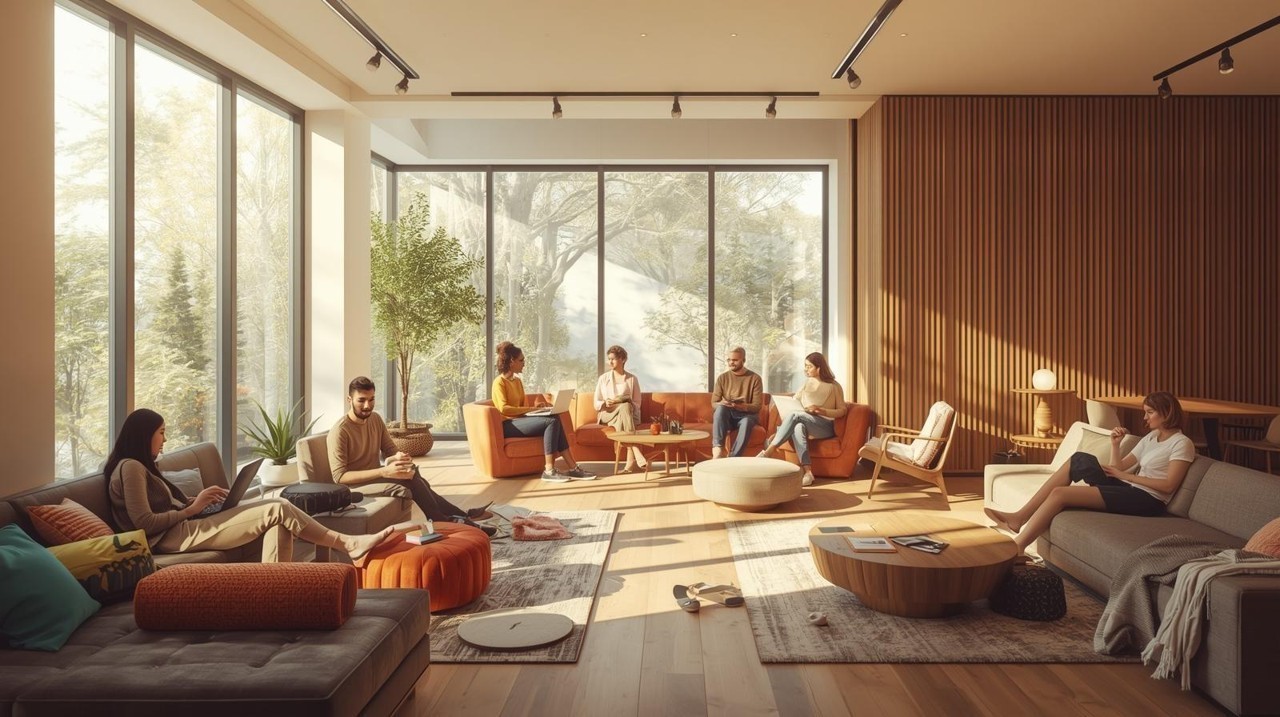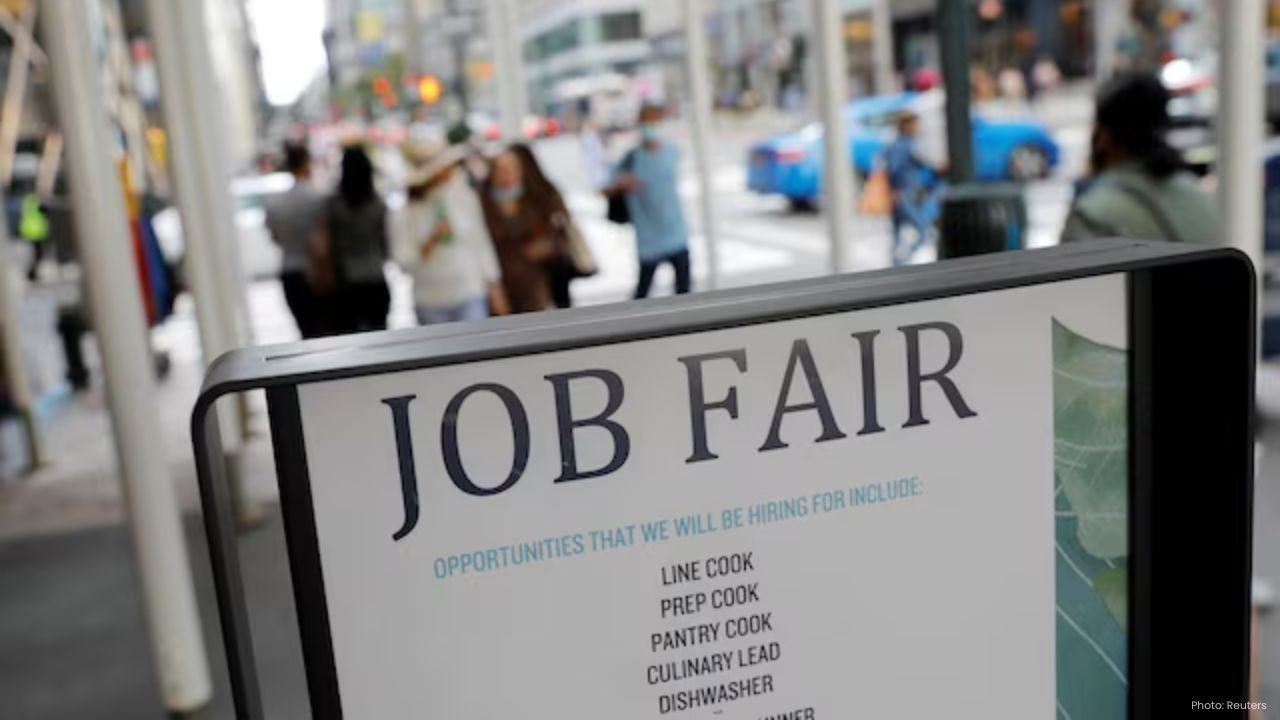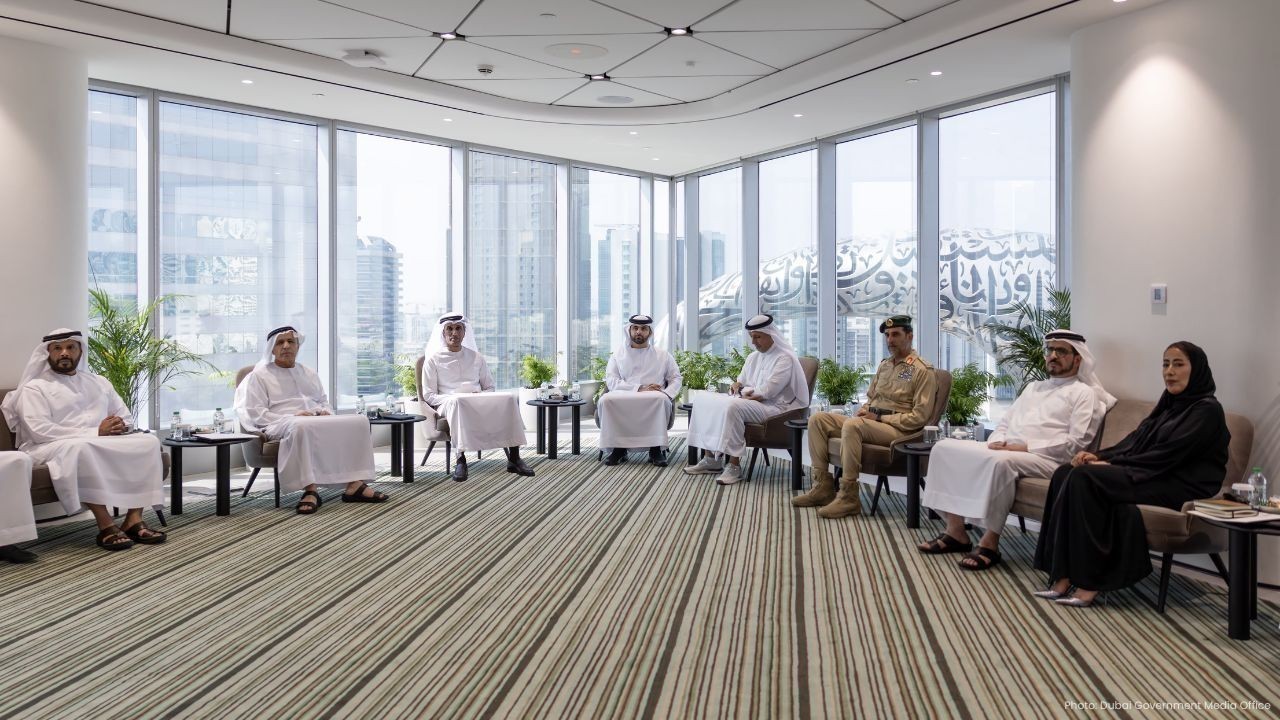
Post by : Sam Jeet Rahman
In today’s fast-paced cities, finding a home that’s both affordable and community-driven can feel nearly impossible. Rent prices are climbing, traditional leases are restrictive, and urban lifestyles are evolving faster than ever. Enter co-living spaces — a modern housing concept designed specifically for urban professionals, freelancers, and remote workers who crave flexibility, comfort, and a sense of belonging.
Co-living is not just a trend; it’s a transformative shift in urban housing. These shared living environments are reshaping how people live, work, and connect — offering affordability, convenience, and social engagement all under one roof.
Co-living refers to a modern form of shared housing where residents have private rooms but share common spaces such as kitchens, lounges, and work areas. It’s an upgraded version of traditional shared apartments, blending the comforts of home with the convenience of a hotel and the community of a social club.
Unlike traditional rentals, co-living spaces often come fully furnished, with utilities, Wi-Fi, housekeeping, and community events included in the rent. Residents can move in without worrying about maintenance or long-term commitments — making co-living a perfect fit for young urban professionals and digital nomads.
In major cities like Dubai, London, New York, or Singapore, rental costs can eat up nearly half of a professional’s income. Co-living provides a cost-effective alternative by sharing resources and space while maintaining high living standards.
Residents enjoy premium amenities — fitness centers, coworking areas, and modern interiors — at a fraction of the cost of renting a studio apartment. With utilities and cleaning often included, budget management becomes simpler and stress-free.
Living in a big city can feel isolating, especially for newcomers. Co-living solves this problem by fostering a sense of community and connection. Residents can easily meet like-minded professionals through events, workshops, or shared lounges.
For freelancers, entrepreneurs, and remote workers, these spaces often double as networking hubs — a place where collaboration happens naturally. It’s not uncommon for co-living residents to team up on business ideas, creative projects, or social initiatives.
Unlike traditional leases that require year-long commitments and security deposits, co-living spaces offer flexible rental terms — from weekly to monthly stays. This appeals to people with dynamic careers or those frequently moving between cities.
Most co-living companies also provide app-based management systems, allowing residents to handle payments, maintenance requests, and event bookings digitally. It’s modern living designed for the digital age.
Forget the stress of furniture shopping or dealing with utility setups. Co-living spaces are turnkey homes — move-in ready with everything included. From stylish interiors to high-speed internet and shared entertainment zones, the goal is to make urban living as seamless as possible.
For busy professionals, this means more time to focus on work and personal goals, and less time worrying about logistics.
Modern co-living spaces often include coworking zones, wellness studios, and social lounges — encouraging both productivity and relaxation. For professionals working remotely or managing hybrid schedules, this setup allows them to maintain a healthy work-life balance within the same environment.
With dedicated workspaces, it becomes easier to separate professional tasks from personal time, improving overall mental well-being and performance.
The rise of remote and hybrid work models has played a massive role in the growth of co-living spaces. As work becomes more flexible, so do living arrangements. Professionals no longer need to live close to their offices — they seek comfortable, community-driven environments that fit their digital lifestyles.
Co-living spaces cater to this demand by offering:
High-speed internet and ergonomic workstations for productivity.
Global networks of properties, allowing members to move easily between cities.
Collaborative communities that promote innovation and creativity.
This lifestyle particularly attracts digital nomads, freelancers, and entrepreneurs who want to balance work, travel, and social interaction.
Beyond affordability and convenience, co-living promotes sustainable living practices. By sharing resources — from utilities to appliances — energy consumption and waste are significantly reduced. Many operators also use eco-friendly materials and smart technologies to minimize their environmental impact.
For environmentally conscious professionals, co-living aligns perfectly with sustainable urban living goals, offering both comfort and responsibility.
The co-living industry has grown rapidly across major global cities. According to property market reports, the global co-living market size is projected to exceed $45 billion by 2030, driven by millennial demand, housing shortages, and changing lifestyle preferences.
Regions leading this trend include:
Asia-Pacific: Cities like Singapore, Hong Kong, and Bangalore are witnessing a co-living boom due to rising real estate prices and a young working population.
Europe: London, Berlin, and Amsterdam are seeing increased investments in co-living real estate.
Middle East: Dubai’s luxury co-living developments are attracting digital professionals and entrepreneurs from around the world.
This growth signals a long-term shift in how people view urban housing — from ownership to access, from isolation to community.
While co-living offers numerous benefits, it’s not without challenges. Some of the key concerns include:
Privacy: Sharing common areas can feel intrusive to those used to living alone.
Compatibility: Conflicts may arise if residents have clashing lifestyles or values.
Regulation: Many cities still lack clear policies on co-living, creating legal uncertainties for developers.
To overcome these, successful co-living operators focus on community curation, where residents are matched based on shared interests and values, ensuring smoother coexistence.
From an investor’s point of view, co-living is one of the most promising real estate segments today. It offers:
Higher yields per square foot due to shared spaces.
Consistent occupancy rates, as demand among young professionals remains high.
Lower vacancy risk, with flexible and short-term leasing options.
Developers are also exploring hybrid models — combining co-living with co-working and wellness centers — to maximize returns and appeal to diverse audiences.
In markets like Dubai, London, and Singapore, co-living is evolving into a lifestyle brand, offering curated experiences rather than just accommodation.
The continued urban migration, combined with lifestyle shifts and digital work trends, ensures that co-living isn’t just a passing phase. It’s becoming a long-term solution to urban living challenges — blending affordability, sustainability, and social connection.
As cities grow denser and property ownership becomes more challenging, co-living represents the perfect middle ground: a way to live well without financial strain or isolation.
Co-living spaces are more than just a place to stay — they’re a lifestyle movement that captures the spirit of modern urban living. For professionals juggling careers, networking, and personal growth, these communities offer a balance of convenience, community, and comfort that traditional housing can’t match.
As the world continues to evolve, co-living is redefining what it means to live in a city — turning shared spaces into shared experiences, and transforming the future of housing for a new generation of professionals.

Mild Earthquake Jolts Shimla, Panic Grips Residents Early Morning
A 3.2 magnitude earthquake hit Shimla early Friday, sending light tremors across the hilly capital a

US Jobless Claims Drop Despite Government Shutdown
US jobless claims fell to 218,000 despite the government shutdown, signaling a strong labor market a

Apple Beats Forecasts with iPhone 17 Demand Surge
Apple reports strong holiday-quarter outlook as iPhone 17 demand surges despite supply delays and Ch

Dubai Financial Market Profit Surges 212% to AED 930.8M
Dubai Financial Market posts 212% profit growth to AED 930.8M in first nine months of 2025, driven b

Dubai Reviews Crisis Readiness Under Sheikh Mansoor’s Leadership
Sheikh Mansoor chairs a high-level meeting to assess Dubai’s crisis readiness, ensuring swift respon

CoreWeave’s $9B Deal With Core Scientific Falls Apart
CoreWeave’s $9 billion merger with Core Scientific collapses after shareholders reject the deal, lea

Reddit Projects Strong Q4 as AI Ad Tools Drive Growth
Reddit expects a strong Q4 with revenue above forecasts, driven by its AI-based advertising tools an

The Healthy Side of Dubai Exploring the Nutritious Essence of Emirati Cuisine
Explore the healthy side of Dubai through Emirati cuisine Discover natural ingredients balanced flav

Affordable Makeup Dupes Discover Luxury Beauty Looks for Less
Discover the best affordable makeup dupes that match luxury brands in quality and style Get stunning

The Magic of Oils A Simple Guide to Choosing the Right One for Your Skin
Find the best natural oil for your skin type Learn how to hydrate balance and glow with the perfect

Taming the Monsoon Frizz Smart Hair Care Tips for Humid Weather
Beat monsoon frizz with easy hair care tips Learn how to keep your hair smooth shiny and healthy eve

Shreyas Iyer Says He Is Recovering Well After Spleen Injury
Indian cricketer Shreyas Iyer says he is recovering steadily after suffering a rare spleen injury du

Qatar Ready to Host FIFA U-17 World Cup 2025 in Aspire
Qatar confirms full readiness to host the FIFA U-17 World Cup 2025 from November 3–27, with world-cl

Laura Wolvaardt’s 169 Leads South Africa to World Cup Final
Laura Wolvaardt scored 169 runs as South Africa beat England by 125 runs in the Women’s World Cup se

Valentin Vacherot Beats Cousin Rinderknech at Paris Masters
Monaco’s Valentin Vacherot defeated his cousin Arthur Rinderknech in a tense three-set match to reac